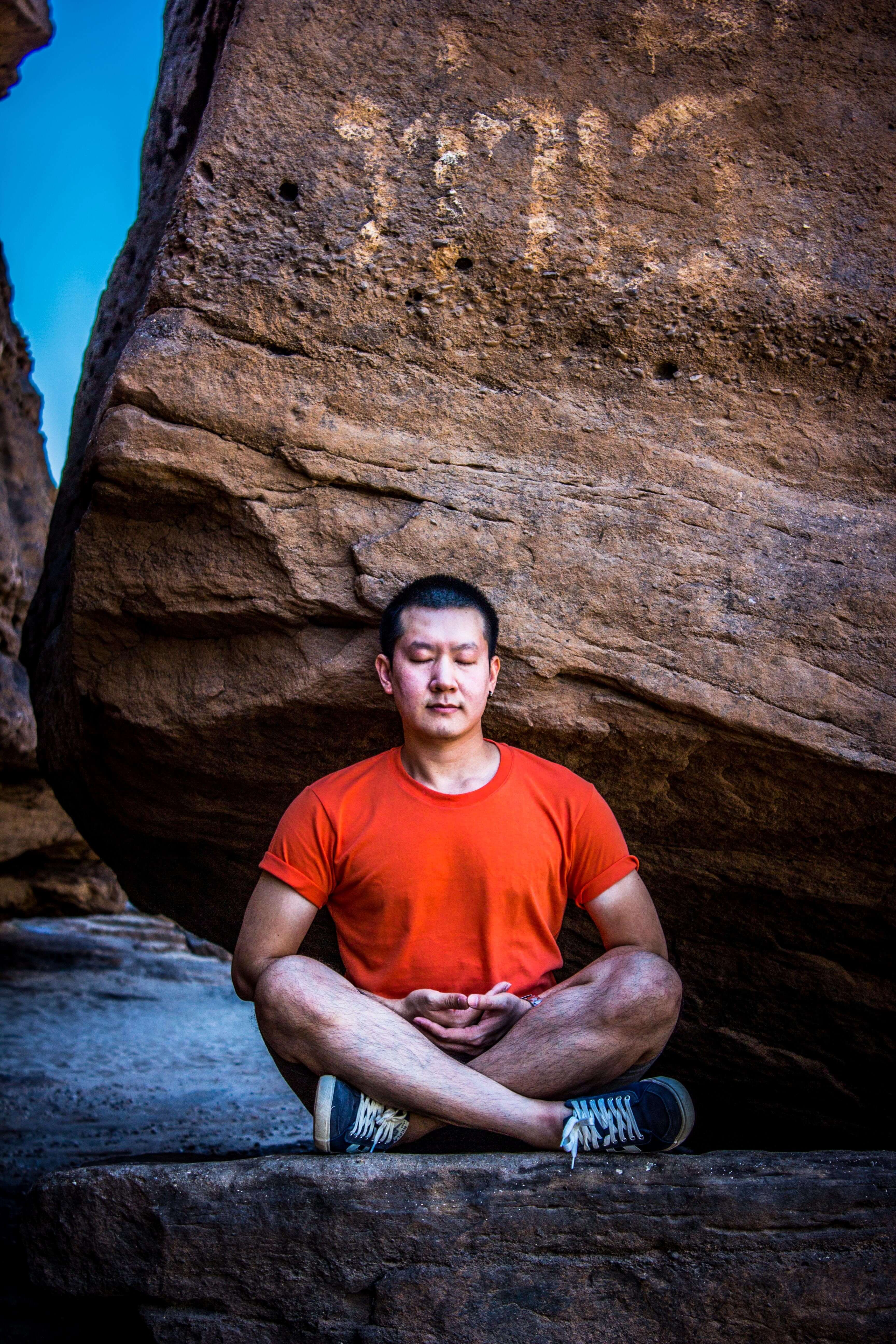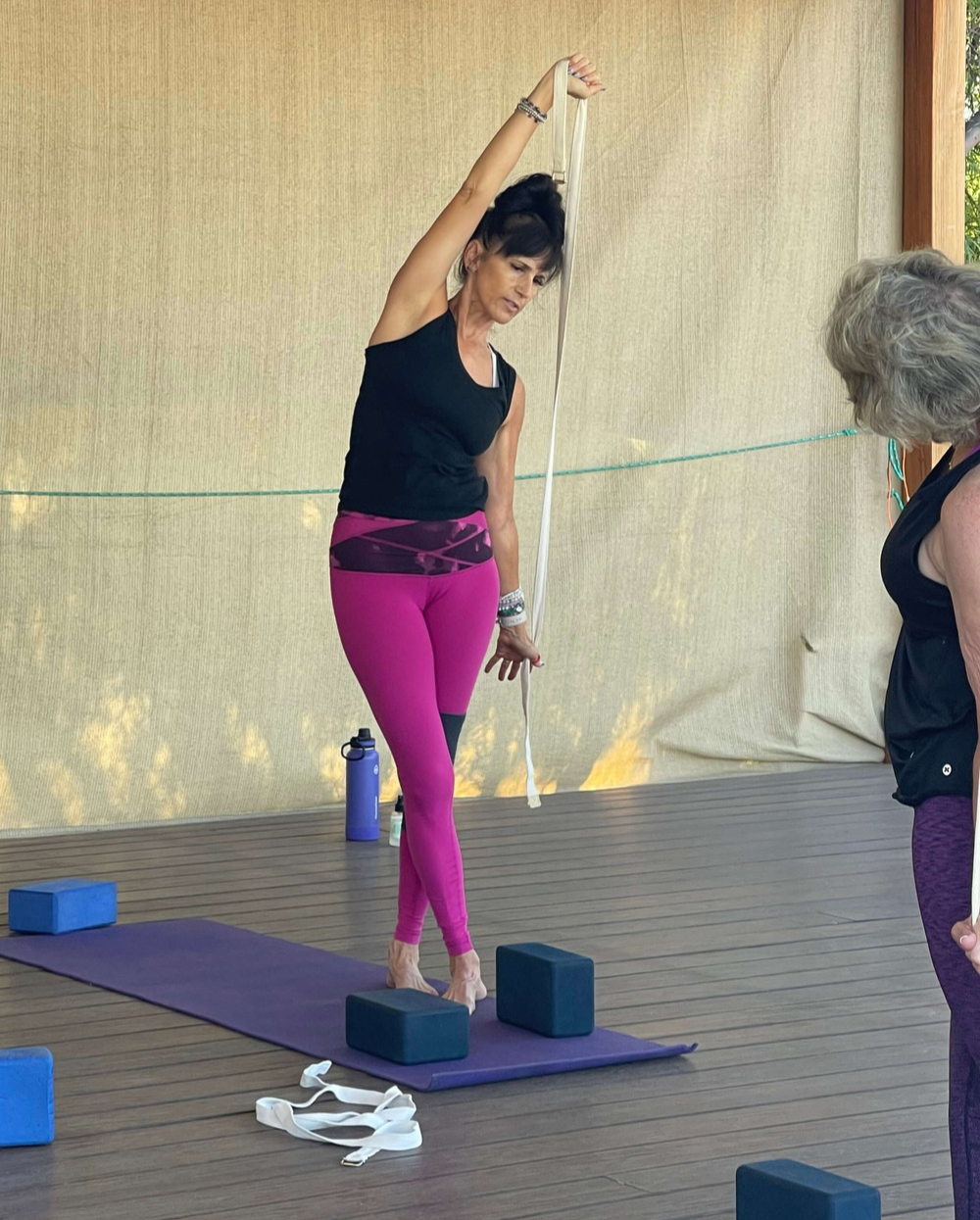How to get the benefits of meditation — without actually meditating
March 8th, 2023 | 5 min. read
By Jen Azevedo

Meditation has become the cure-all for most modern-day troubles people face. It helps to reduce stress, minimize negative self-talk, increase creativity, and bring a sense of calm.
But who actually wants to — or even has the time — to sit on a cushion with legs crossed to breathe deeply for 30 minutes every day?
If you are like most adults in the 21st century, that time simply does not exist. (Plus, doesn’t your back start to cramp sitting in that position for so long?)
The Paseo Club is a social club in the Santa Clarita Valley that has supported members in fitness, health, and wellness for almost 20 years. We know that mental health is an integral part of everyone’s life, and we all benefit from taking time for self-care.
In this article, we will share what meditation is, why meditation is essential for people of all ages, and how to get the benefits of meditation without actually meditating.
 What is meditation?
What is meditation?
Meditation is an ancient practice that encourages mindfulness.
Mindfulness is the process of bringing attention to your thoughts and feelings and then letting them go. When your mind strays, you gently bring your focus back to the here and now. You let your worries for the past and future exist, but not require your attention.
Many people use deep breathing as a tool to aid in their practice. Breathing helps keep your mind more focused and gives it a task, preventing it from worrying or stressing about life.
The role of stress in our lives
Stress, anxiety, and worry are rampant for people of all ages and backgrounds, especially for women, teens, young adults, the poor, single parents, and people of color. There are several reasons for this.
- Work
- Political strife
- Health problems
- Financial struggles
- Climate/environmental concerns
According to the American Institute of Stress, stress affects almost all of us.
- About 33 percent of people report feeling extreme stress
- 48 percent of people have trouble sleeping because of stress
- 73 percent of people have stress that impacts their mental health
- 77 percent of people experience stress that affects their physical health
The Global Organization for Stress reports that:
- 80 percent of people feel stress at work
- Stress is the number one health concern of high school students
- 75 percent of Americans experienced moderate to high stress levels in the past month
Stress is not just a mental health condition; it affects physical health as well. Heart disease, high blood pressure, cancer, lung disease, cirrhosis of the liver, and diabetes are associated with stress.
Why is meditation essential?
Stress takes a toll on all of us, physically and mentally. We must learn coping mechanisms to counterbalance the effects of stress.
Meditation brings tranquility and respite when we need it most. It is proven to reduce stress and improve quality of life. It is a practice that short-term and long-term improves mental and physical health.
It is a safe, drug-free approach that requires no equipment or financial investment. Anyone — including children — can learn how to meditate.
What are the benefits of meditation?
The Mayo Clinic notes that people who engage in meditation receive a host of benefits, specifically around lowering stress.
- Increase patience
- Increase creativity
- Focus on the present
- Increase self-awareness
- Build skills to manage stress
- Reduce negative or harmful emotions
- Find a new perspective on how to manage stress
8 top ways to get the benefits of meditation — without actually meditating
The problem with meditation is that it has a PR problem. People associate meditation with fancy pillows, goofy music, and inhaling and exhaling in some sort of hyper-complex way that is too fussy to be worth learning.
But this is not the only way to experience the state of calm and inner peace that meditation provides.
1. Walk
When you walk outdoors, allow your legs to move at a comfortable cadence and let your mind be unencumbered by music or podcasts. You may find thoughts, worries, and to-do lists flooding at you. That is ok.
See if you can notice them but not get pulled into a story. Take a deep breath. Can you smell the grass? Last nights' rain? A flowering bush?
Dog owners can take inspiration from their pets. Watch how your dog wags its tail. Notice their exuberance just to be outside, exercise, and breathe the fresh air. How can you feel excited about your walk on this day?
2. Spend time in nature
Many of us spend our waking hours indoors in urban or suburban environments. But spending time in nature is proven to improve our moods, increase focus, and promote a sense of well-being.
In Japan, they have added forest bathing as an agenda for their national health policy.
Natural environments, whether they are meadows, beaches, deserts, or forests, inspire a sense of awe. Awe helps us feel a childlike wonder that helps us transcend our day-to-day worries.
Watch a bird grasp a piece of grass to build its nest. See a squirrel scampering about with its mate. Get up early to view the sunrise, noting the colors of the sky.
3. Tidy
We all may wish we were Marie Kondo tidying our way to order and happiness. But this may be a standard too high for 99% of us.
Instead, see if you can shift your mindset about cleaning from drudgery to meditation.
Next time you sweep or fold laundry, see what you can do to let the experience be a vehicle for being present. Feel the broom handle in your hand. Hear the bristles brushing against the floor. Feel the gentle twist in your torso.
These simple shifts in our attention help to backburner stressors and become mindful.
4. Do something new
As adults, we tend to get stuck in ruts. We do the same job, attend the same gym class, and eat at the same restaurants (even ordering the same meals).
Learning a new skill helps the mind to focus on a singular objective — mindfulness. Research also proves that learning something new boosts happiness and confidence.
Try a new sport, an artistic pursuit, or even a card game and see how you feel.
Remember, learning something new does not mean you have to become an expert, let alone proficient in the activity. Simply enjoy the experience, letting go of any judgments about perfection or success.
5. Stare out the window
Whether it is bird watching, people watching, or just spacing out at nothing in particular, focusing on something that is not your thoughts can be a great mini-vacay from stress.
If you can use this time to find the awe in the experience, then you double your benefits.
Look for people laughing at the table next to you at the café, kids happily playing at the park, or the way the neighbor’s cat is sunbathing in the yard.
6. Journal
Sometimes we need a break from the hamster wheel of worries. Sitting down at your laptop (or better yet, with a pencil and paper) to write out your concerns, troubles, and sorrows, is both meditative and cathartic.
Write as if no one was watching or reading. Let all your feelings out so you can experience a sense of release and relief.
7. Sing (as if nobody's listening)
It is shown that singing lifts people’s spirits and helps to foster a sense of connection with others.
Singing forces you to be in the moment — feet planted on the floor, posture erect, and lungs expanding and contracting as you inhale and sing.
Singing in the shower is one great (daily) option. But if you can join a community choir or even sing with a friend on a road trip, all the better.
8. Do something creative 
One of the greatest follies of adulthood is the belief that you can no longer have fun. But adults need to play, experiment, and create too — just like children.
Being creative helps you to step outside your mature, responsible self and get in touch with an artistic side. You engage in a project for the sole sake of expression.
Again, you need not be a professional to make something. Creative pursuits include drawing, pottery, woodworking, cooking, and gardening. The options are limitless.
Using meditative activities to boost your quality of life
Americans are struggling, teens and young adults especially. Climate change, political upheaval, health issues, and financial instability are wreaking havoc on our psyches.
Traditional meditation practice is inaccessible to many people. But we all need to find ways to bring mindfulness into our lives as an antidote to stress, anxiety, and depression.
In this article, we discussed what meditation is, its benefits, and eight alternate ways to access a meditative state without the cushion and fancy breathing exercises.
The Paseo Club knows physical and mental health is critical to overall well-being. We offer over 60 group fitness classes each week so you can sweat it out with other members creating camaraderie and fun (which also reduces stress).
You can attend classes focused on mindfulness, such as yoga and Pilates, or choose high-intensity options like HIIT or cycle.
Court fans enjoy our 21 pickleball and tennis courts. Swimmers are partial to the outdoor junior Olympic pool that is open year-round.
Whatever your favorite activity is, we likely have you covered. If you are interested in learning more about the Paseo Club and becoming a member, then sign up for a tour.
Check out these three articles to learn more about the role of mental health in your life.
- Stress Less, Sweat More
- The 8 best relaxation techniques
- 9 Best steps to shed stress (Inspiration from Blue Zones)
Jen Azevedo is a tennis professional, pickleball professional, personal trainer, group exercise instructor, and the general manager of the Paseo Club. She loves the community at the Paseo Club and that it is also a safe and fun place for her daughter. Jen’s favorite activities are joining her tribe for trail races or her partners for tennis matches. Occasionally Jen slows down to relax with a book — she reads over 100 a year!
Topics:

